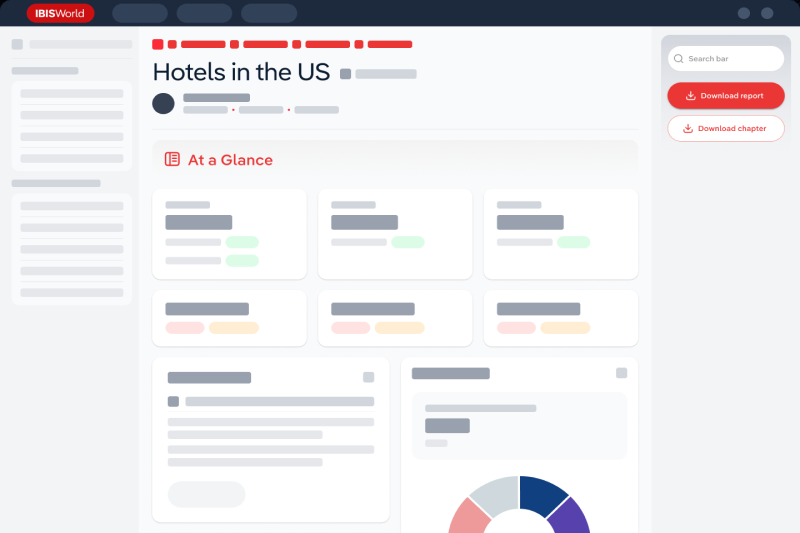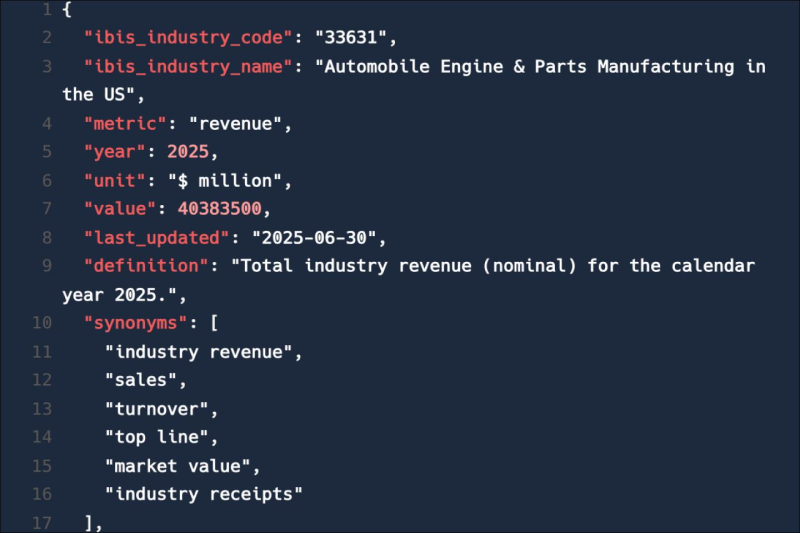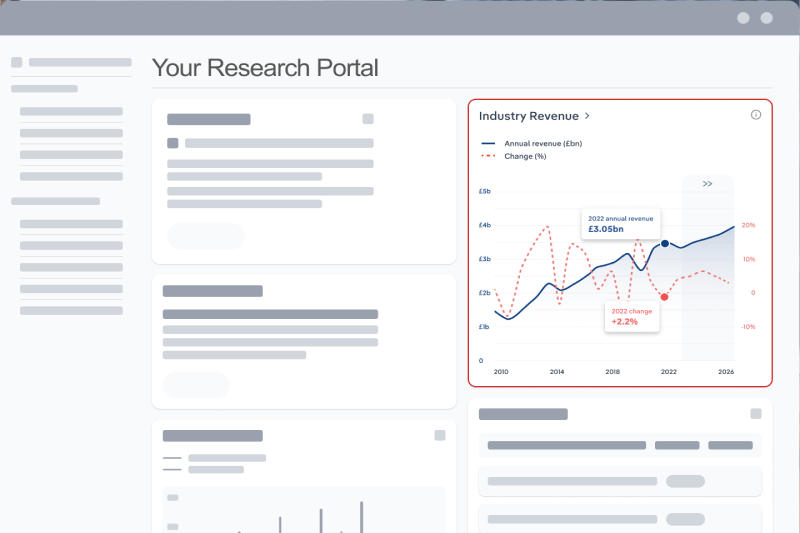IBISWorld Platform
Answer any industry question in minutes with our entire database at your fingertips.

Sugar processing in Europe has undergone a turbulent period brought on by volatile prices and government strategies to reduce consumption. Driven by measures to curb sugar intake, several European countries have imposed taxes on sugary drinks, and some have even taxed sugary foods. Food and drink manufacturers are responding by altering their recipes by reducing sugar and substituting it with other sweeteners, which has depressed sugar sales.

Answer any industry question in minutes with our entire database at your fingertips.

Feed trusted, human-driven industry intelligence straight into your platform.

Streamline your workflow with IBISWorld’s intelligence built into your toolkit.
IBISWorld's research coverage on the Sugar Production industry in Estonia includes market sizing, forecasting, data and analysis from 2015-2030. The most recent publication was released October 2025.
The Sugar Production industry in Estonia operates under the industry code EE-C1072. The industry specialises in producing and refining sugar (sucrose) and various sugar substitutes, utilizing cane, beet, maple, and palm sources to deliver a broad array of sweetening solutions across diverse markets. Related terms covered in the Sugar Production industry in Estonia include molasses, beet pulp and bagasse.
Products and services covered in Sugar Production industry in Estonia include Refined sugar, Raw sugar and Syrup.
The Sugar Production industry in Estonia is highly fragmented with no companies holding a market share greater than 5%.
The Performance chapter covers detailed analysis, datasets, detailed current performance, sources of volatility and an outlook with forecasts for the Sugar Production industry in Estonia.
Questions answered in this chapter include what's driving current industry performance, what influences industry volatility, how do successful businesses overcome volatility, what's driving the industry outlook. This analysis is supported with data and statistics on industry revenues, costs, profits, businesses and employees.
The Products and Markets chapter covers detailed product and service segmentation, analysis of major markets and international trade data for the for the Sugar Production industry in Estonia.
Questions answered in this chapter include how are the industry's products and services performing, what are innovations in industry products and services, what products or services do successful businesses offer and what's influencing demand from the industry's markets. This includes data and statistics on industry revenues by product and service segmentation and major markets.
The Geographic Breakdown chapter covers detailed analysis and datasets on regional performance of the Sugar Production industry in Estonia.
Questions answered in this chapter include where are industry businesses located and how do businesses use location to their advantage. This includes data and statistics on industry revenues by location.
The Competitive Forces chapter covers the concentration, barriers to entry and supplier and buyer profiles in the Sugar Production industry in Estonia. This includes data and statistics on industry market share concentration, barriers to entry, substitute products and buyer & supplier power.
Questions answered in this chapter include what impacts the industry's market share concentration, how do successful businesses handle concentration, what challenges do potential industry entrants face, how can potential entrants overcome barriers to entry, what are substitutes for industry services, how do successful businesses compete with substitutes and what power do buyers and suppliers have over the industry and how do successful businesses manage buyer & supplier power.
The Companies chapter covers Key Takeaways, Market Share and Companies in the Sugar Production industry in Estonia. This includes data and analysis on companies operating in the industry that hold a market share greater than 5%.
Questions answered in this chapter include what companies have a meaningful market share and how each company is performing.
The External Environment chapter covers Key Takeaways, External Drivers, Regulation & Policy and Assistance in the Sugar Production industry in Estonia. This includes data and statistics on factors impacting industry revenue such as economic indicators, regulation, policy and assistance programs.
Questions answered in this chapter include what demographic and macroeconomic factors impact the industry, what regulations impact the industry, what assistance is available to this industry.
The Financial Benchmarks chapter covers Key Takeaways, Cost Structure, Financial Ratios, Valuation Multiples and Key Ratios in the Sugar Production industry in Estonia. This includes financial data and statistics on industry performance including key cost inputs, profitability, key financial ratios and enterprise value multiples.
Questions answered in this chapter include what trends impact industry costs and how financial ratios have changed overtime.
The Industry Data chapter includes 10 years of historical data with 5 years of forecast data covering statistics like revenue, industry value add, establishments, enterprises, employment and wages in the Sugar Production industry in Estonia.
More than 6,000 businesses use IBISWorld to shape local and global economies
We were able to supplement our reports with IBISWorld’s information from both a qualitative and quantitative standpoint. All of our reporting now features some level of IBISWorld integration.

IBISWorld delivers the crisp business knowledge we need to drive our business. Whether it be serving up our major clients, winning new business or educating on industry issues, IBISWorld brings real value.

IBISWorld has revolutionised business information — which has proved commercially invaluable to exporters, investors and public policy professionals in Australia and overseas.

When you’re able to speak to clients and be knowledgeable about what they do and the state that they operate in, they’re going to trust you a lot more.

The market size of the Sugar Production industry in Estonia is €1.9m in 2026.
There are 1 businesses in the Sugar Production industry in Estonia, which has declined at a CAGR of 0.0 % between 2020 and 2025.
The market size of the Sugar Production industry in Estonia has been declining at a CAGR of 6.0 % between 2020 and 2025.
Over the next five years, the Sugar Production industry in Estonia is expected to decline.
Refined sugar and Raw sugar are part of the Sugar Production industry in Estonia.
The level of competition is moderate and steady in the Sugar Production industry in Estonia.




